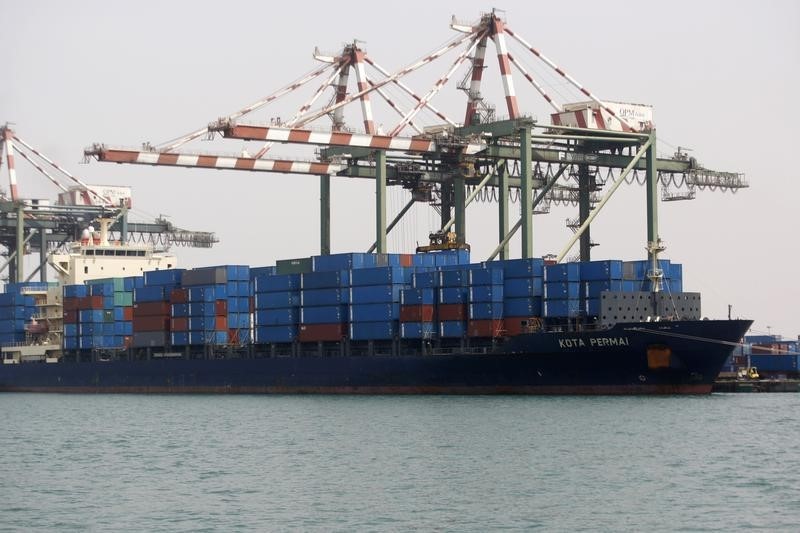SEOUL (Reuters) - South Korean exports in May suffered their worst annual fall in nearly six years on a combination of slowing growth in China, weaker oil prices and fewer working days, backing market expectations for a further interest rate cut soon.
Exports by Asia's fourth-largest economy fell 10.9 percent in May from a year earlier, the biggest drop since a 20.9 percent slump in August 2009 during the height of the global financial crisis, the trade ministry data showed on Monday.
It was weaker than a median 9.0 percent decline tipped in a Reuters survey of 15 analysts.
The gloomy exports join poor results from a private-sector survey on the country's manufacturing sector, which analysts say strengthens the case for an additional interest rate cut.
"There are several one-off factors but the weak export figures and the persisting weakness in other recent indicators support our view that the Bank of Korea will have to cut interest rates soon," said Park Sang-hyun, chief economist at HI Investment & Securities.
The Bank of Korea last eased policy in March in a surprise move, cutting the benchmark rate by 25 basis points to a record low 1.75 percent to kick start an economy growing at its slowest annual pace in two years.
The monthly HSBC/Markit survey showed on Monday that South Korea's manufacturing activity contracted for a third consecutive month in May and by the sharpest pace since the middle of 2013.
Seoul stocks (KS11) fell nearly 1 percent in early trade while the won <KRW=> dropped more than half a percent after the poor export and manufacturing survey data were released, although bond futures held steady.
South Korea sends one-quarter of its total exports to neighbouring China, where a persistent economic slowdown continues to drag on Korea's overseas shipments.
